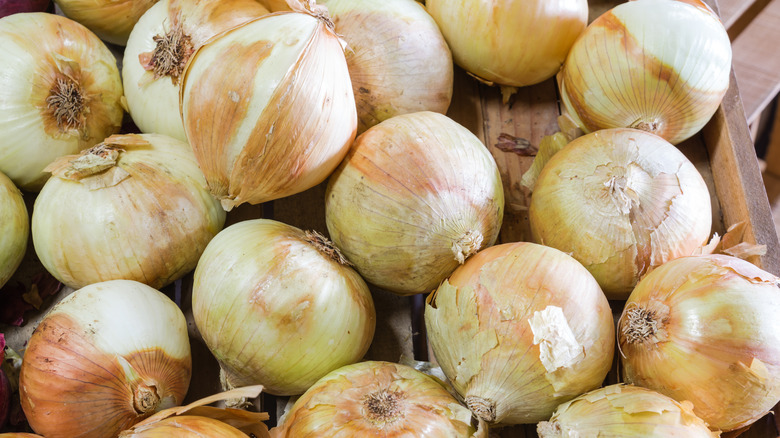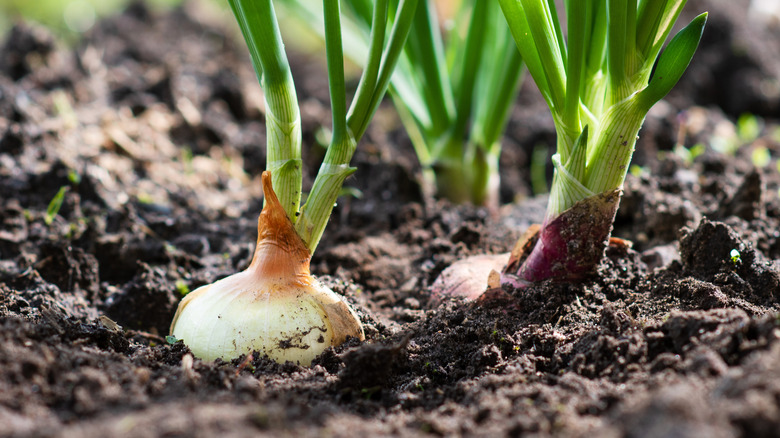The Strict Government Regulations Behind Vidalia Onions
Aside from Vidalia, onions don't normally get names. The effort that goes into onion labeling normally goes about as far as a quick glance at the color or shape, and then off to the market it goes. The different types of onions are far from interchangeable, but they certainly don't exhibit the wide range of textures and flavors that would justify a hundred different names, as apples do. So Vidalia onions must be pretty special to break the mold that way, and especially so to justify a Congressional act making the mislabeling of Vidalias a criminal offense.
Granting certain foods protected status isn't that common in the U.S., but it happens frequently in Europe. According to the European Commission, a Protected Designation of Origin is a legal label that establishes certain requirements for labeling traditional foods and wines. The idea is that something about a place's geography and climate can't be replicated, and copying the name without producing the food properly can devalue the product. In the U.S., one of the better-known uses of that idea is New Mexico chiles, which NPR states are protected by law because of the unique flavor the state's high-altitude climate produces. Vidalia onions are another of these rare examples where an American crop is considered unique enough to deserve protected labeling. But what actually makes an onion a Vidalia?
Vidalia onions can only come from certain Georgia counties
Like the chiles of New Mexico, it's where Vidalia onions are grown that sets them apart. According to the Martha Stewart site, Vidalias originate in the state of Georgia, and the Vidalia Onion Act of 1986 codified into law that only onions grown in 20 specific counties in Georgia can legally use the name. Vidalia onions are grown using a unique variety of onion seed, and have a noticeably sweet flavor, even compared to other sweet onions. Allrecipes reports that the sugar content of Vidalias is about 12%, whereas most onions are only about 5%. Vidalias are also milder when cooked, and don't have as intense of an acidic bite to them when raw.
What is it about Georgia that makes for such sweet onions? Apparently, it's all about the soil. The counties where Vidalia onions can be grown have fields with extremely low amounts of sulfur in them, which is the element that normally lends onions their acidity. Despite the limited area of production, Vidalia onions have become very popular in the rest of the country, with Explore Georgia noting that over 5 million 40-pound boxes of onions are shipped from the state each year. Just like Idaho did with the potato, Georgia is so proud of the Vidalia that the state made it its official vegetable in 1990. If you made onions this sweet and special, you'd be protective too.

